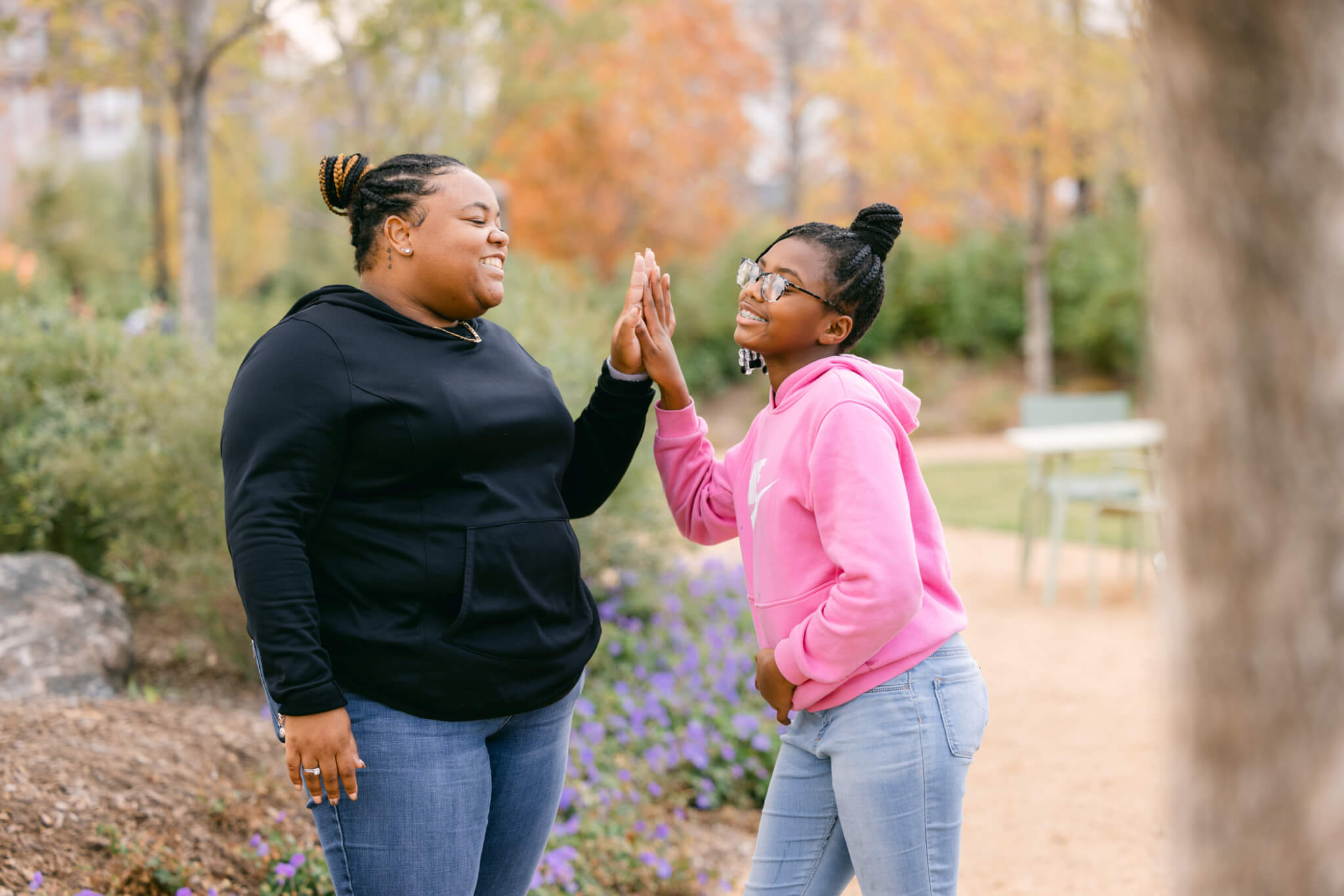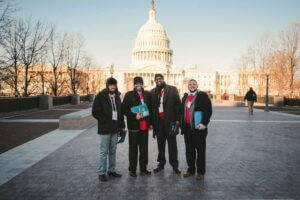Congressional Youth Mentoring Caucus
Founded in 2002, the bipartisan Congressional Youth Mentoring Caucus facilitates opportunities for Members of Congress and their staff to learn about the value of youth mentoring and ways that the government can support programs and create relationship-centered spaces for youth in communities. The caucus is a reflection of bipartisan and sustained congressional support for the national mentoring movement.
Youth mentoring helps young people feel connected and can give them a sense of belonging that they don’t receive in other places. Young people with mentors report greater engagement and achievement in their education, fewer mental health concerns, and higher career satisfaction. Mentoring is an evidence-based prevention and intervention strategy with benefits infused in all aspects of life; it increases life satisfaction for both young people and mentors.
Today, we know that approximately 1 out of 3 youth in America want a mentor, but can not find one. Collectively, 2 out of 3 youth will experience a period of time when they wanted a mentor but did not have one.
Whether youth are participating in a community, faith-based, athletic, school-based, workforce, or any other mentoring program, the Congressional Youth Mentoring Caucus is committed to closing the “mentoring gap” and supports collaborative investment in mentoring services.
View Highlights from the Youth Mentoring Caucus
Facts and Figures
- 66% of youth will experience a period of time growing up when they wanted a mentor but did not have one.
- Mentoring is one of few prevention and intervention strategies that can effectively address multiple risk and protective factors simultaneously. It can positively impact youth mental health, education, career exposure/skill development, and support prosocial behaviors that prevent drug usage and violence.
- There is strong public support for government investment in youth mentoring. A public survey in 2019 found that 83% of all Americans express at least some agreement that government funds should be used for youth mentoring.
- Young people facing risk are more likely to get access to highly impactful mentors through formal programs. In the United States, of the young people served by mentoring programs, 51% are low-income, 36% are facing risk of dropping out, and 8% have incarcerated parents or family members.
Legislation
Learn more about the federal policy priorities and principles of the mentoring movement here.
Past Virtual Events

The Youth Mentoring Grant Congressional Briefing
This briefing, co-hosted by MENTOR and the Congressional Youth Mentoring Caucus, explored the Office of Juvenile Justice and Delinquency Prevention (OJJDP) Youth Mentoring Grant: the only mentoring-specific line item in the federal budget. This event featured panels and presentations of local, state, and national grantees, who discussed the work they’ve been doing to support youth in their communities through mentorship, with a special focus on programs for youth involved in the juvenile justice system and programs for youth impacted by opioids and drug addiction.

Expanding Quality Relationships to Support Youth Mental Health
Mentoring relationships have a positive impact on youth development and can prevent and help youth cope with depressive systems. They also support a wide range of meaningful outcomes for young people that can positively impact their mental health, such as education, skills training/career exposure, and acceptance and identity development. The Congressional Youth Mentoring Caucus and MENTOR hosted this briefing with the voices of youth, experts, and practitioners to share more about the impact of quality mentoring relationships on mental health and policies that would help address the ‘mentoring gap’.

Leveraging Relationships for Student Connectedness, Engagement and Achievement
MENTOR and the Congressional Youth Mentoring Caucus hosted an educational briefing on school-based mentoring and the positive academic, connection, and engagement outcomes correlated with mentoring young people. The briefing featured panels of subject matter experts, program leaders, and youth, who will explore how mentoring relationships can be an innovative and effective prevention and intervention strategy to address chronic absenteeism and improve other academic success metrics. Members of Congress also gave remarks on federal legislation opportunities to expand and enhance school-based mentoring programs and partnerships with local education agencies across the country.

Advancing Inclusive Mentoring 2
MENTOR, along with the National Disability Mentoring Coalition (NDMC), Partners for Youth with Disabilities (PYD), and the American Association for People with Disabilities (AAPD) held a community briefing on Thursday, September 23. The briefing further defined and discussed the four programmatic and policy priorities to move inclusive mentoring forward: connecting with more role models; connecting with more mentors; building a peer mentoring workforce; and delivering inclusive and accessible e-mentoring solutions.

Advancing Inclusive Mentoring
This briefing explored opportunities in training, accessibility and funding models that mentoring programs can utilize to increase inclusion and participation by youth and students with disabilities. Highlights of the briefing included testimonials from young adults with disabilities along with examples of promising, scalable models from around the country. The National Disability Mentoring Coalition (NDMC) and the American Association of People with Disabilities (AAPD) joined MENTOR National to identify successful strategies in advancing inclusive mentoring.

Mentoring in a Pandemic: Lessons Learned and Future Implications
In this briefing, panelists discussed how programs have had to adjust and pivot their delivery of mentoring services as a result of the COVID-19 pandemic. The briefing explored research and evidence on virtual mentoring, resources and strategies to maximize work in the e-mentoring space, lessons learned from direct service partners, and implications for practice in the future.

Congressional Briefing: Fostering Positive Outcomes Through Mentorship
This congressional briefing, co-hosted by the Congressional Caucus on Foster Youth and the Congressional Youth Mentoring Caucus, discussed the growing research base supporting positive outcomes for foster youth with mentors and offer a chance to hear from program representatives, mentors, and youth about their experiences in the field.

Contact Us
Caden Fabbi, Policy Manager, MENTOR National
Faith Wilcox, Senior Legislative Assistant, Rep. Mary Gay Scanlon




